Human brain is one of the most important and fragile organs in the body. A dysfunction in any part of the brain or nervous system leads to neurological disorders that result in physical or psychological symptoms.
The development of the child’s brain starts when the child is still in the mother’s womb and continues through infancy until adolescence. Most of the brain cells are developed before birth but there are many nerve cells or neurons that are formed in infancy.
Human brain is self-organizing. It selects information for its growth and development. The brain adapts itself to the environment. Experiencing environment with the senses of touch, smell, sight, taste and hearing forms connections in the brain.
There are many neurological disorders. They have various causes, complications and symptoms. Symptoms appear depending on the area of brain that is affected. For example, cerebral palsy demonstrates more physical symptoms whereas ADHD have greater effects on human behaviour.
Most of the neurological disorders appear during the early years of development and are diagnosed at birth. But some are diagnosed later as symptoms appear when a child misses developmental milestones or has an accident that leads to brain injury.
Causes of Neurological Disorders
The causes of neurological disorders in children are due to different reasons. Some of them include:
-
Genetic Disorders
Some of the children get neurological disorders through their genes by parents. Another possibility is gene mutations which occur at the time of fetal development. This also affects the development of the brain and the nervous system of the child.
-
Neurotoxins
Neurotoxins are harmful substances. They affect the brain development of the fetus during pregnancy. These toxins include alcohol, lead, mercury and certain food additives. They are passed down to the fetus through the placenta. This results in the newborn babies having intellectual or behavioural issues.
-
Hypoxia
Hypoxia is caused by damage to the brain due to low supply of oxygen. It may happen at the time of fetal development. Additionally, the complications at delivery may also lead to this disorder. As a result, the child has intellectual problems. Also the child suffers from other common neurological disorders, for instance, epilepsy.
-
Postnatal Infections
Some neurological disorders are caused due to postnatal infections in children. The most common of these infections are encephalitis and meningitis. Due to this, the children suffer from various symptoms such as memory issues, speech impairments, behavioral problems and other related problems.
-
Injury
Any injury to the brain or spinal cord can also be responsible for neurological disorders in children. The harshness of the disorders depends on the injury and the affected brain area.
Common Neurological Disorders in Children
Neurological disorders are very common among children nowadays. If you notice any such disorder in your child, do take him to a neurologist. Child neurologists are there in every city. For instance if you are living in Bangalore and looking for neurologist in the city just type in neurologist in Bangalore in Google search and you will find the best results!
Some of the common neurological disorders in children are:
1. Fetal Alcohol Syndrome
This neurological disorder is caused when a pregnant woman consumes alcohol. The alcohol is passed onto the fetus and hence it is deprived of nutrients and oxygen. As a result, several organs are damaged. Some of its symptoms include hyperactivity, difficulty to be focused, lack of judgment, intellectual mutilation, learning disability and slow development related to speech, movement and social skills
2. Attention Deficit Hyperactivity Disorder (ADHD)
This is one of the most common neurological disorders in children and can even continue until adolescents. Children in schools are regarded as naughty when they tend to forget things or daydream in the class. ADHD is a disorder that makes it difficult for a child to pay attention and control impulses. Such children are unable to finish their work and are regularly distracted. ADHD is caused due to hereditary factors, poor nutrition, substance abuse or brain injury.
3. Epilepsy
This disorder involves seizures. It affects diverse aspects of a child’s life including social behaviour and learning ability. However, the research says that 70% of the children with epilepsy recover from it as they grow older. Epilepsy is caused due to genetic factors, developmental disorders, infectious diseases and injury caused to the brain prior to birth. Other symptoms of epilepsy are sudden unresponsiveness for a few seconds, being alert immediately after a seizure and forgetting a seizure episode.
4. Cerebral Palsy
The most common sign of cerebral palsy is late development. It affects a child’s motor skills. Infants are unable to sit, crawl and walk. This neurological disorder causes children to have difficulty in coordination and movements like standing, walking, eating and even talking. There is no particular reason for cerebral palsy but it is believed to be caused during pregnancy when the fetus doesn’t grow properly or develops a brain damage.
5. Autism
Autism is a neurological disorder which is common throughout the world. Children with autism look at the things around them in a different way as compared to other children of their age. There is no specific cause for autism, nevertheless, a number of environmental, behavioural and genetic factors may be responsible for this condition. An autistic child may have a speech impairment, challenged social and communication skills and emotional disorders.
6. Dyslexia
Dyslexia is a common learning disability in which children find it difficult to read correctly, spell, write and understand what is written. The exact cause of the condition is still not identified. Children with dyslexia can read to above average levels, if diagnosed early.
Do not ignore any such disorder in your child and take him to a neurologist soon.


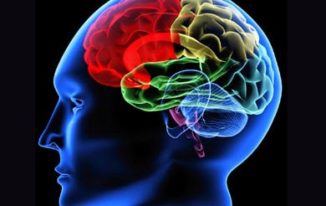

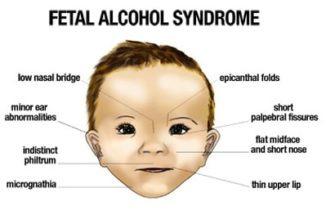

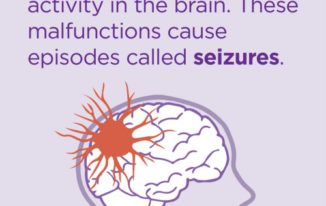
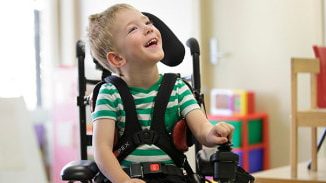
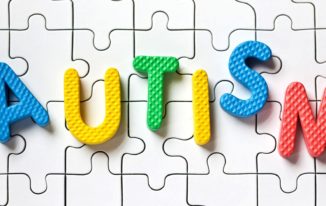
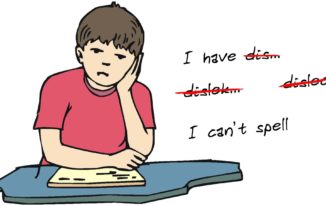



This post does a great job of giving an overview of various disorders that many do not understand. It is a great step forth in education.
Hi Elise
Thanks for your wonderful feedback. Hope it spreads awareness.
Wow, that is a wealth of information. Thanks so much for sharing. This is great information that I will share, it is a wonderful summary.
Glad that you liked the post!
Hi Sonal,
Thanks for sharing a fantastic post about Neurological disorders. I really appreciate your effort.
Keep it up.
Hi Robin
Thanks for sharing your wonderful feedback!
Hey Sonal! I have to agree with the others, you certainly did a great job informing us about the neurological disorders in children!
Thanks for sharing.
Chery :))
Thanks for your wonderful feedback Chery!
I think sometimes we are quick to give different developments and abilities in children a name that seems they are somehow lacking. I was a day dreamer for sure but now if children can’t concentrate they must have some disorder. Interesting facts, thank you for sharing.
Enjoy the journey!
Hi Mandy
Good to know that you found the post useful!
Hi Sonal, thanks for a helpful post. A lot of things to keep in Mind.
Glad that you liked it Saurabh!
Hi there,
Very nice article.
Thanks for sharing this post.
Keep up the good work.
Hi Shahzeb
Glad that you liked it.
Thanks for visiting!
Hi Donna
As always an interesting read. I agree with your points & appreciate your efforts that you have selected this topic to write an article.
By the way, It’s always pleasure to read your posts and comment.
~ Donna
Thanks for the words of appreciation Donna!